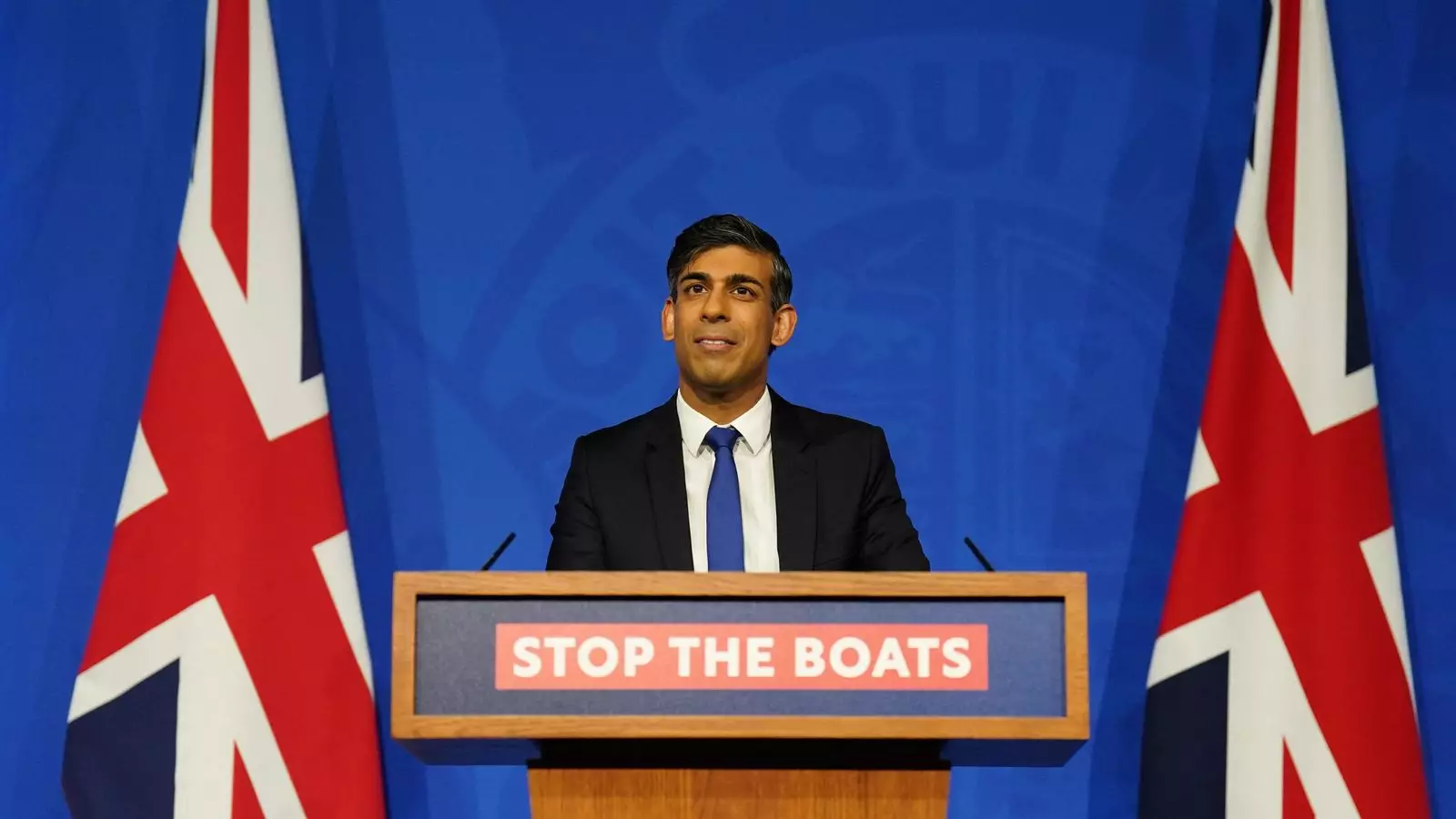In a crucial vote in the Commons, Rishi Sunak manages to avoid a damaging Tory rebellion over his flagship Rwanda bill. The totemic legislation, which aims to revive the stalled £290m deportation scheme, received backing from MPs at its second reading with a majority of 43 votes. This result will come as a huge relief to Prime Minister Boris Johnson, who spent the day engaging in crisis talks with various factions of the Tory right to secure their support for the bill.
Potential Future Hurdles
While the immediate threat of rebellion has been averted, the divide within the Conservative Party remains. The division list revealed that 37 Tories abstained from voting, although none voted against the bill. Despite the criticisms and trashing of the legislation by many Tories in recent days, this lack of opposition does not guarantee smooth sailing for the bill in the future. The hardliners who abstained are now demanding amendments to tighten the plan and prevent interference from foreign courts. Moderates from the opposite wing have already stated that they will not support such amendments, setting the stage for a future battle.
The Rwanda bill seeks to declare in UK law that Rwanda is a safe country to send asylum seekers to. It also aims to prevent flights from being grounded for legal reasons by allowing ministers to disapply sections of the UK’s Human Rights Act. It is worth noting that the bill does not propose disapplying the European Convention on Human Rights, despite calls from some on the right. This legislation was designed to revive the deportation scheme previously ruled as unlawful by the Supreme Court.
As MPs started voting, several Tory hardliners from the so-called “five families” factions expressed their lack of support for the plan. The majority of them chose to abstain from voting. They have announced their intention to table amendments in the new year to further improve the bill and remove perceived weaknesses. Importantly, they have warned that if these changes are not made, they may vote against the legislation during its third reading.
The Upcoming Battle
The outcome of this vote does not mean smooth sailing for the Rwanda bill. Prime Minister Rishi Sunak is expected to face another fight in January when the bill returns to parliament. While Downing Street has expressed willingness to consider proposed changes from MPs at a later stage, Home Secretary James Cleverly hinted in the Commons that the legislation is already stretched to its limits. This suggests that further amendments demanded by hardliners may face resistance from the government. Additionally, the One Nation caucus of moderate MPs has announced that they will not support the bill if it becomes more hardline, further complicating matters for the government.
International Obligations and Threats of Withdrawal
Damien Green, the chairman of the One Nation caucus, has emphasized the importance of meeting international obligations and maintaining the rule of law. He stated that the legislation as it stands goes to the very edge of what is acceptable. He urged for the bill to proceed unamended and only accept minor changes. It is worth noting that Rwanda has also cautioned the UK government, expressing its intention to withdraw from the treaty if the UK breaches its international obligations.
Government’s Temporary Relief
Despite the potential future hurdles, ministers were buoyed by the result of the vote, with none of the required revolt or abstentions materializing. This outcome indicates that the bill successfully passed its first Commons hurdle. The government’s working majority of 56 made it essential for at least 29 Tory MPs to revolt or for 57 abstentions to occur in order to defeat the bill. Such a defeat has not happened since 1986. The government and Prime Minister Boris Johnson remain committed to making the bill law and reviving the deportation scheme.
The victory in the Commons does little to resolve the ongoing divide within the Conservative Party. The Labour Party sees this as evidence that the “Conservatives’ civil war is continuing.” Shadow Home Secretary Yvette Cooper criticized Rishi Sunak’s weakness and the prolongation of this Tory psychodrama into the new year. She argued that the costs of the failing Rwanda scheme are rising, questioning the effectiveness of the proposed solution in addressing the larger issue of immigration.
The Way Forward
The controversy surrounding the Rwanda bill highlights the deep divisions and tensions within the Conservative Party. The bill’s survival in a crucial Commons vote does not guarantee its success in subsequent stages. Hardliners demanding amendments and moderates opposing them have set the stage for future battles. The government will face challenges in balancing international obligations, the rule of law, and the desire to tightly control immigration. As the bill progresses, it remains to be seen whether a compromise can be reached or if the Tory rebellion will escalate further.

Leave a Reply